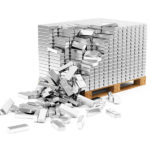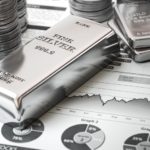Dont Discount the Yes Side in Swiss Gold Referendum
(November 13, 2014 - by Axel Merk)
(Kitco News) – Although support appears to be waning ahead of Switzerland’s gold referendum, one analyst isn’t ready to discount the “yes” side just yet.
Axel Merk, president and chief investment officer of Merk Investments, recently published a commentary regarding the gold referendum and in an interview with Kitco News said that investors shouldn’t rule out a “surprise” result.
Switzerland has regularly held these types of “direct democracy” referendums and voters have become complacent with the system, as a result voter turnout has traditionally been low, which could be a positive for the yes side, he added.
In less than three weeks, Swiss residents will go to the polls to vote on an initiative that would force the Swiss National Bank (SNB) to increase its gold holding to 20% of its official reserves. The central bank would also not be able to sell its holdings and the third part of the initiative would be for the country to repatriate all of its gold reserves.
Early polls in October initially showed strong support for the initiative; however, since then the “no” side has gained momentum. The latest poll, an online survey conducted Oct. 31 by 20 Minuten, the country’s most widely read daily newspaper, showed that only 38% were in favor of the central bank increasing its gold reserves, 47% were against it and 15% were undecided.
Merk explained that the Swiss People’s Party, a populist political party in Switzerland, started the gold referendum initiative and has strong support throughout the country. Come Nov. 30, the party could find enough support that the vote passes.
Although the referendum is about the country’s gold reserves, Merk noted that it is also a discussion on the role of the central bank and a lot of people in Switzerland are upset the SNB, which is unelected, is imposing economic policies on them.
Since 2011, the central bank, in an effort to support the economy, has maintained a 1.20 per euro price cap for the Swiss franc. Merk said that this cap is a “backdoor euro policy,” something that the majority of Swiss residents have already voted against.
“What the Swiss care most about is that they are Swiss. They don’t want to be part of the European Union,” he said. “The reason why people might vote for this initiative is that they realize that they are selling out to Europe.”
Merk admitted the initiative still faces an uphill battle as the government and central bank have come out strongly against the referendum, saying that it would impede the SNB’s flexibility to ensure price stability and to contribute to the stable development of the country’s economy.
However, he argued that the path of a weaker currency is not the best way to promote economic growth and “people have the right to decide what economic path to go down.”
“From a practical point of view, I firmly believe that you can not devalue yourself into prosperity; it just doesn’t work,” he said.
Instead of trying to compete against weaker currencies, Merk said that the government should embark on fiscal reforms and shift their economy to where they can compete with a stronger currency. However, he added that it is not an easy path to follow, which is why governments around the world have opted for the path of least resistance, which spending more and increasing their debt levels.
“We’ve come to a state in the world where there is so much debt that this won’t have a good ending for the Japanese, for Europeans and for the U.S.
Looking at the gold market, if the referendum does pass, Merk is not expecting it to have a massive impact on gold prices in the long term. Although there could be a modest rally on the initial news, he is only expecting the referendum to create a floor in the marketplace.
Under the referendum, the central bank would have up to five years to purchase enough gold to meet the 20% requirement. That is enough time that it won’t cause a major disruption in the gold market, he added.
Currently the SNB holds 1,040 metric tons of gold, making up 7.5% of its official reserves. According to various research reports, if the referendum passes, the central bank would have to purchase about 1,500 tons over the next five years.
The central bank would have three years to repatriate its gold as 20% is held with the Bank of England and 10% is held with the Bank of Canada.
Although the government does not support the initiative, Merk said it a yes vote wouldn’t be disastrous as Switzerland is one of the few countries that know how to maintain a proper gold market.






